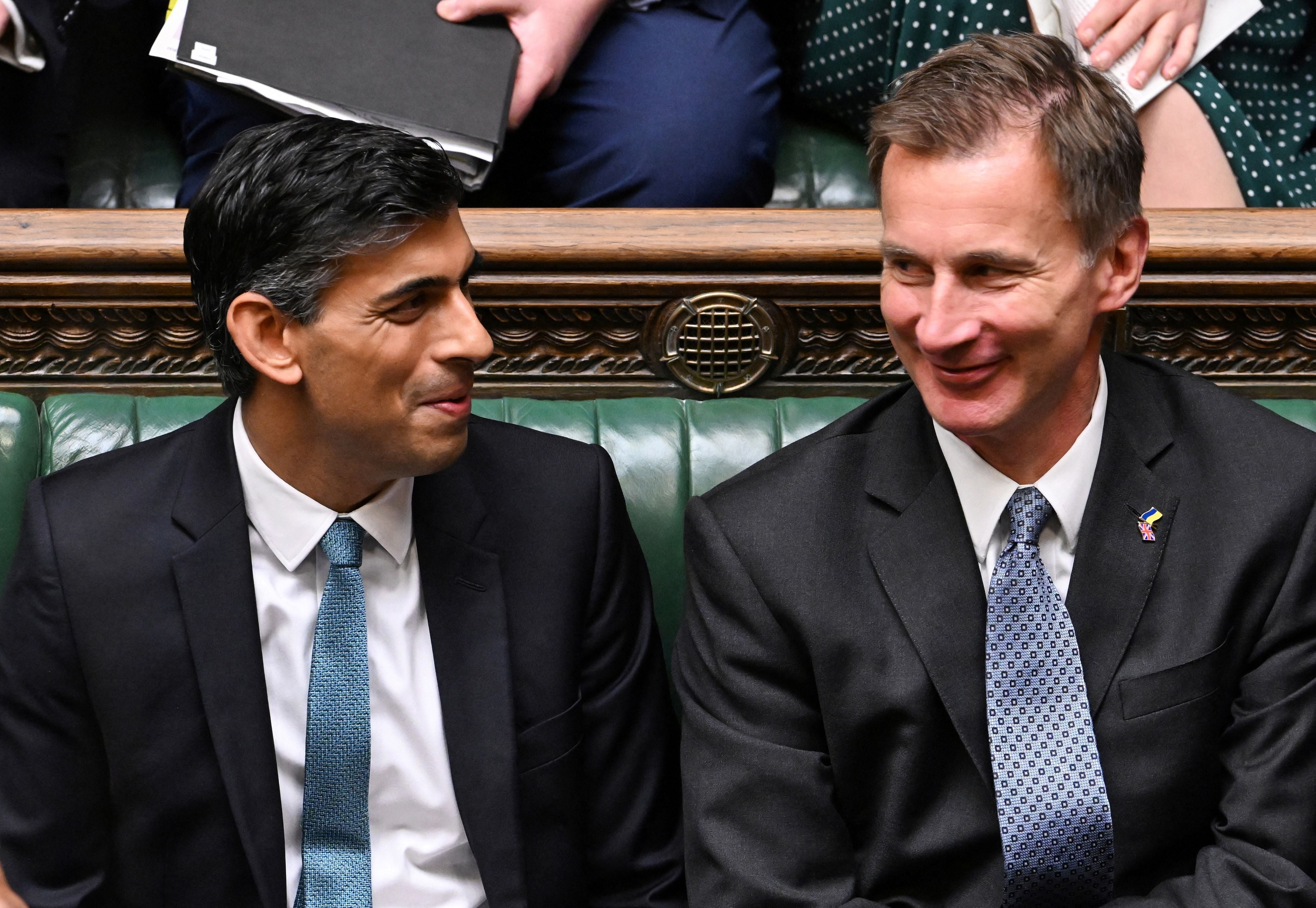Rishi Sunak’s £150bn ‘stealth tax raid’ will cost families £5,000 each
Exclusive: Labour analysis of OBR forecasts reveals staggering cost of tax squeeze until 2028
Your support helps us to tell the story
From reproductive rights to climate change to Big Tech, The Independent is on the ground when the story is developing. Whether it's investigating the financials of Elon Musk's pro-Trump PAC or producing our latest documentary, 'The A Word', which shines a light on the American women fighting for reproductive rights, we know how important it is to parse out the facts from the messaging.
At such a critical moment in US history, we need reporters on the ground. Your donation allows us to keep sending journalists to speak to both sides of the story.
The Independent is trusted by Americans across the entire political spectrum. And unlike many other quality news outlets, we choose not to lock Americans out of our reporting and analysis with paywalls. We believe quality journalism should be available to everyone, paid for by those who can afford it.
Your support makes all the difference.Rishi Sunak’s “stealth tax raid” means Britons will be paying £150bn in extra national insurance contributions and income tax over the next six years, it has emerged.
Labour said the decision by the prime minister and his chancellor Jeremy Hunt to freeze tax thresholds would cost the equivalent of £5,000 for every household in the UK.
The party’s analysis of the Office for Budget Responsibility (OBR) forecasts revealed the staggering cost of the tax squeeze until 2028. The combined impact of freezing income tax and NIC thresholds will cost taxpayers more than £30bn a year by 2025-26, according to the OBR’s assessment of Mr Hunt’s autumn statement.
Labour said the “stealth hike” had been made worse by the government’s failure to get a grip on soaring inflation, leaving Britain facing the highest rise in prices in the G7 over the next two years.
Pat McFadden, Labour’s shadow chief secretary to the Treasury, said Mr Sunak was “sending working people the bill for his economic failures”.
The frontbencher said: “His failure to grip inflation means working families face an average £5,000 stealth tax hike, whilst the prime minister refuses to touch lucrative loopholes for non-doms and private schools.”
He added: “Labour would get our economy growing again, making the UK the best place to start and grow a business, and ensuring we lead the world in the green industries of the future.”

Mr Hunt said Mr Sunak’s government was “asking more from those who have more” as he set out plans to freeze national insurance and inheritance tax thresholds last month. The new chancellor said he was extending Mr Sunak’s previous decision to freeze income tax allowances for an extra two years, until 2028.
It means more Britons will fall into the higher thresholds and end up paying more tax because of the impact of wage inflation. The process – which has already pushed many into higher brackets – is known as “fiscal drag”.
The OBR said it estimated that 3.2 million new taxpayers would be created by the now six-year freeze on the personal allowance, and that 2.6 million more people are being brought into the higher-rate band, which includes those earning between £50,271 and £150,000.
Mr Hunt also lowered the threshold above which the 45 per cent top rate of income tax is paid, from £150,000 to £125,000, from next April.
Tory MPs in favour of low taxes are also unhappy about the “stealth tax hike” from the freeze on thresholds. Former minister Esther McVey said raising taxes was the “last thing for a Conservative government to do”, while the Taxpayers’ Alliance lobby group said that freezing thresholds at a time of high inflation meant the government “risks balancing the books on the backs of the poorest”.
But the Treasury has insisted that no one’s take-home pay will be reduced as a result of the threshold freeze policies.
A Treasury spokesperson said: “We are committed to protecting people on low incomes, which is why since 2010 we have increased the tax-free allowances for both income tax and national insurance by more than inflation, roughly doubling them in cash terms to take millions more people out of paying tax altogether.
“We are restoring the public finances in the fairest way possible so the economy can support the country through the challenges ahead and grow, which is why it is the highest-earning households who will shoulder the most burden and no one’s take-home pay will reduce as a result of these policies.”





Join our commenting forum
Join thought-provoking conversations, follow other Independent readers and see their replies
Comments